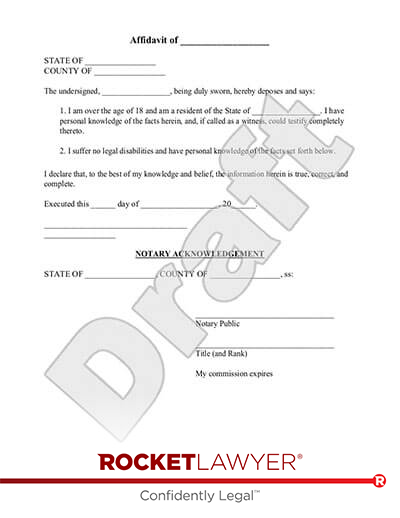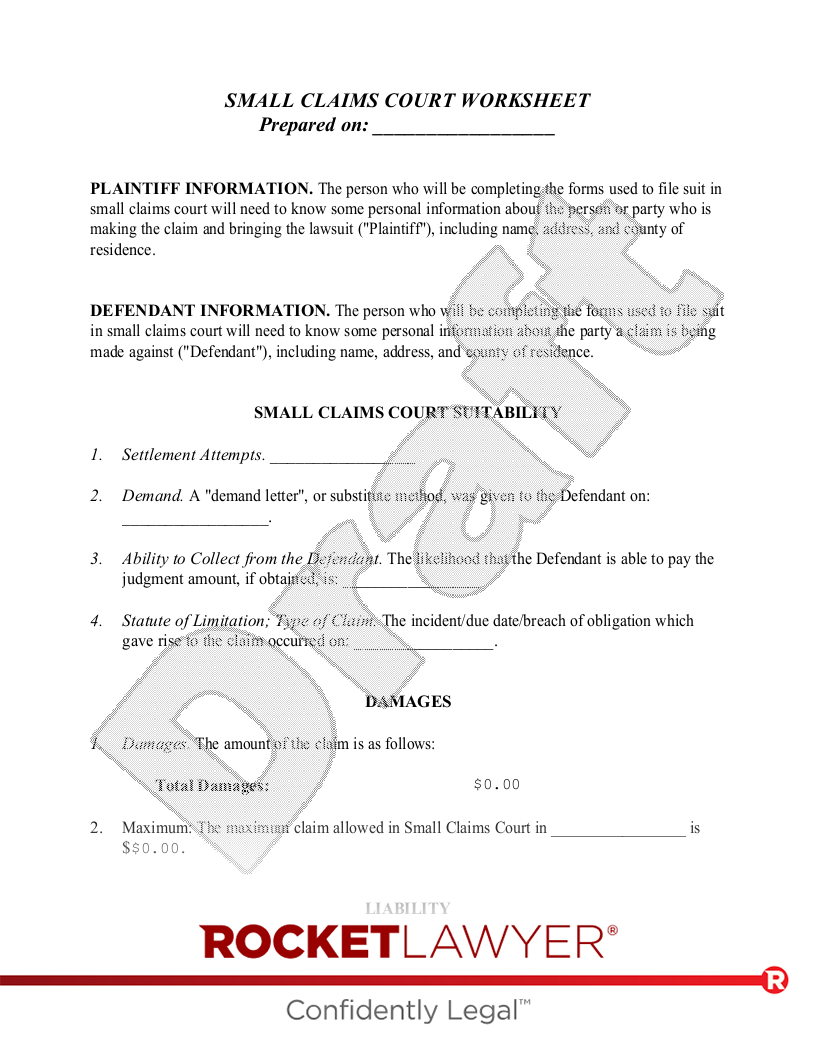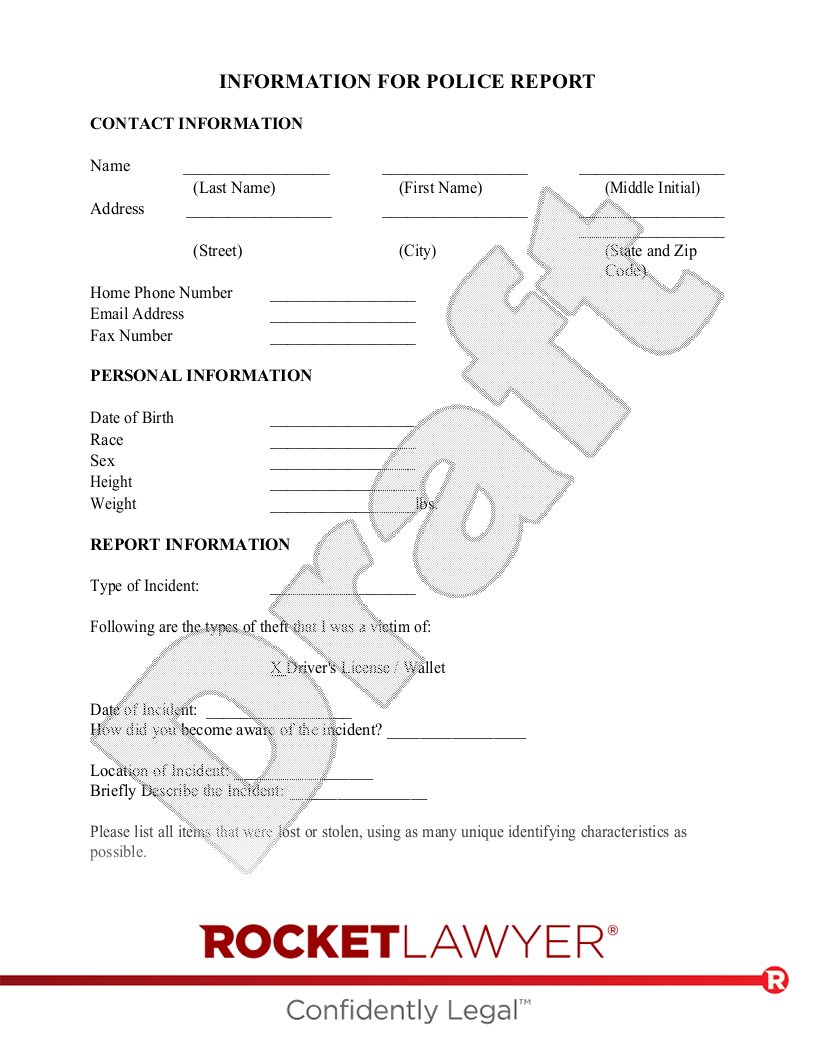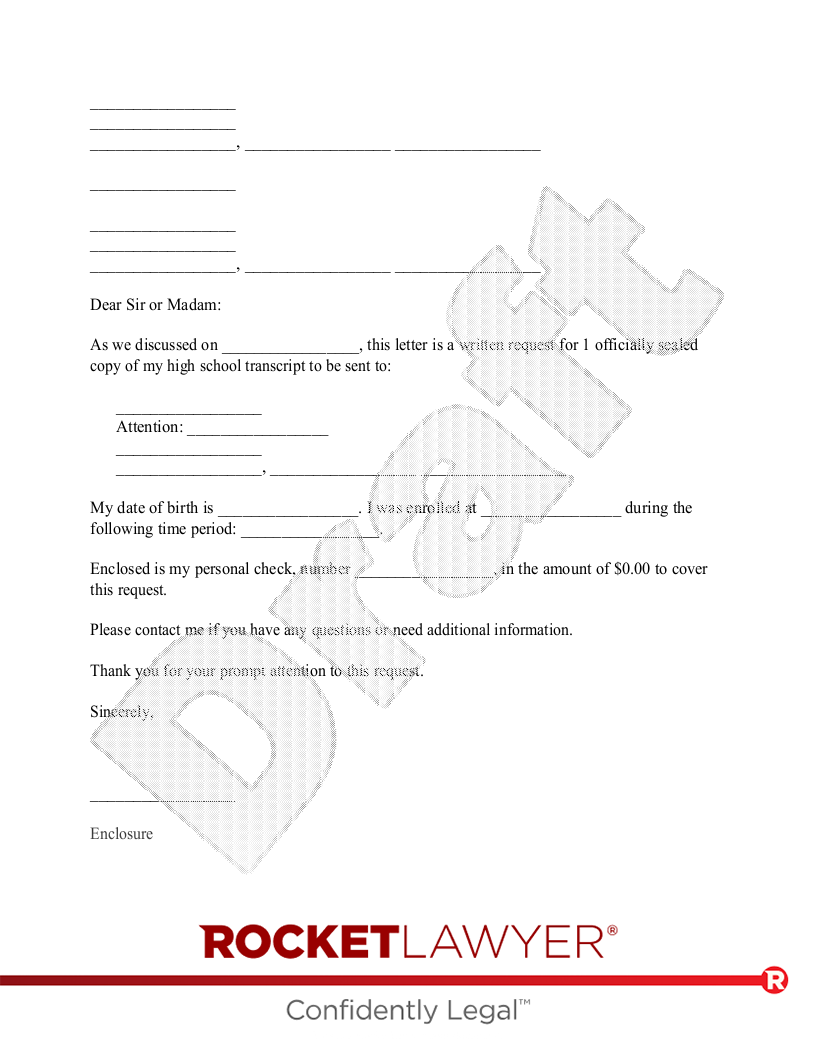General legal matters
Live Confidently® with everyday legal help from Rocket Lawyer.
- Darren K.
- Rocket Lawyer member since 2012
Ask us anything legal.
Get instant Al insights with Rocket Copilot or talk to a Legal Pro.

Need a legal answer? Choose your path
Try Rocket Copilot (Beta) for instant answers!
Need more personalized guidance? Ask your questions, and our Legal Pros will respond within 1 business day.
Legal guides
-
- Police Stops: Know Your Rights When Pulled Over or Questioned
- 8 min read
-
- How to Get a State I.D. Card from the DMV
- 2 min read
-
- What Is a Restraining Order and How Do You Get One?
- 4 min read
-
- How to Reinstate a Suspended Driver's License
- 5 min read
-
- Know your rights: Immigration rights and protections
- 3 min read
-
- Fighting State or International Extradition
- 2 min read
-
- What if You Can't Afford a Lawyer?
- 4 min read
-
- How to Apply for a U.S. Passport
- 2 min read
-
- How to Contest a Parking Ticket
- 2 min read
-
- How To Avoid Disputes When Your Lottery Pool Wins Big
- 3 min read
-
- How to File a Car Accident Report with the DMV
- 2 min read
-
- Know Your Rights: How to Protest Legally and Safely
- 9 min read
-
- How to Apply for Refugee or Asylum Status in the U.S.
- 3 min read
-
- Do I Need a Traffic Ticket Attorney?
- 3 min read
-
- Types of Immigration Forms
- 4 min read
-
- What To Do When Legal Trouble Strikes on Vacation
- 3 min read
-
- Do I Need a Lawyer for a DUI?
- 2 min read
-
- How to Apply for Citizenship Through Naturalization
- 2 min read
-
- Visas for U.S. Citizens Who Wish to Travel or Work Overseas
- 1 min read
-
- Do I Need an Immigration Lawyer?
- 2 min read
-
- Non-immigrant Visas for Aliens Visiting the U.S.
- 1 min read
-
- What To Do If You're Arrested by Immigration Customs
- 2 min read
-
- Do I Need a Lawyer for Native American Law?
- 2 min read
-
- Hurricanes and Wildfires: How to Prepare for a Natural Disaster
- 4 min read
-
- Information for Victims of Crime Overseas
- 1 min read
-
- Can My Boss Deny My Time Off Request?
- 3 min read
-
- How Lawyers Bill for Their Services
- 3 min read
-
- What Can a Cease and Desist Letter Do?
- 3 min read
-
- Essential Documents for Guardianship and Child Care Planning
-
- How Much Do Lawyers Cost?
- 3 min read
-
- How to Hire a Lawyer
- 2 min read
-
- Firing Your Lawyer
- 2 min read
-
- What is the Attorney-Client Privilege?
- 2 min read
-
- How To Ask Your Boss for a Raise or Bonus
- 3 min read
-
- 5 Reasons Why You Need E-Signatures
- 3 min read
-
- April Fools' Day Pranks Gone Wrong
- 4 min read



